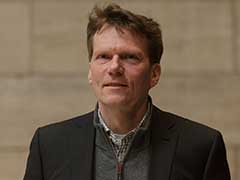The German sociologist and political scientist explains how public spaces are fundamental both for the democratic health of the political sphere and for the individual growth of citizens and the development of their critical voices.
The German sociologist and political scientist Hartmut Rosa explained his perspectives on public space. Rosa visited the Centre of Contemporary Culture of Barcelona (CCCB) on 7 March, in order to participate in the cycle of conferences “Our Time”, where he presented his theses about our current “accelerated lives”.
According to Rosa, the relevance of public spaces lies both on the political sphere and on individual life. This is why the sociologist, by using a musical metaphor, considers public space as a “sphere of resonance”. This sphere brings opportunities for the expression of individual voices that, in turn, are enriched by the resonance of other voices. Thus they create an harmony or, in the author’s words, “a musical democracy, where the voices transform so to create a symphony.” Being aware of his idealized vision on public space, Rosa conveys the idea of it being a sphere where citizenship is developed in the creation of the common. Public spaces are places where personal growth and development of the individual is outwardly expressed, transforming individual voices in critical by confronting them amongst each other.
Rosa considers that university campuses are public spaces that should be preserved. Beyond being a place where ideas and artistic expressions are born and learnt, university campuses are spaces of encounter, where students develop their voices and ask for an answer. This is why Rosa is opposed to the idea of the supposed efficiency of online distance-learning platforms. Taking the transformative potential of university campuses, the author concludes that “society can get renewed and changed its shape and receive creative impulse out of such a setting”.



